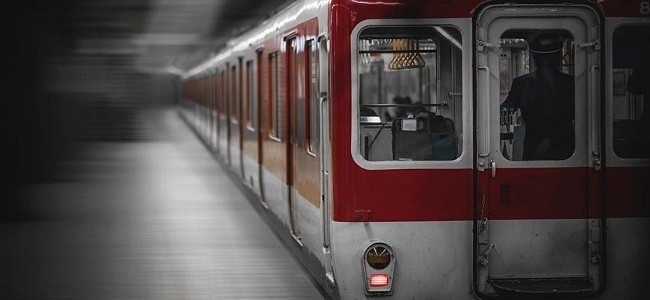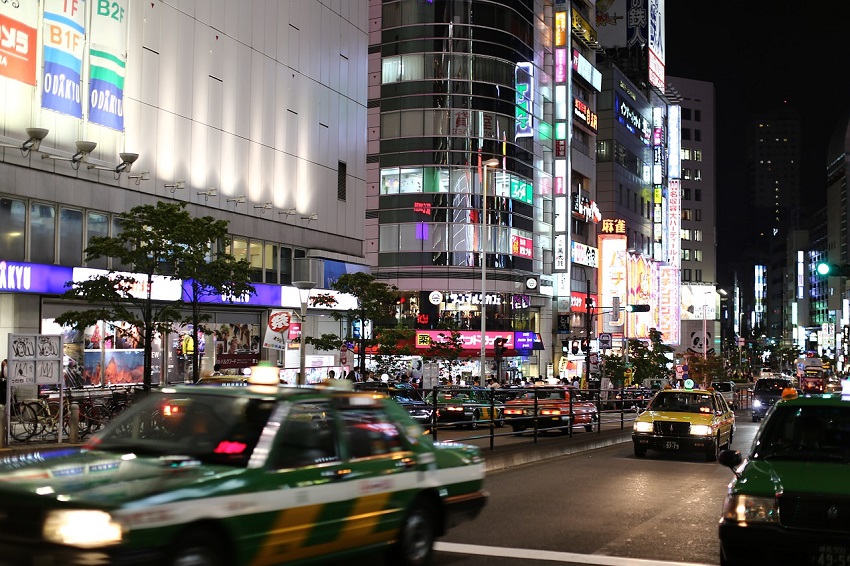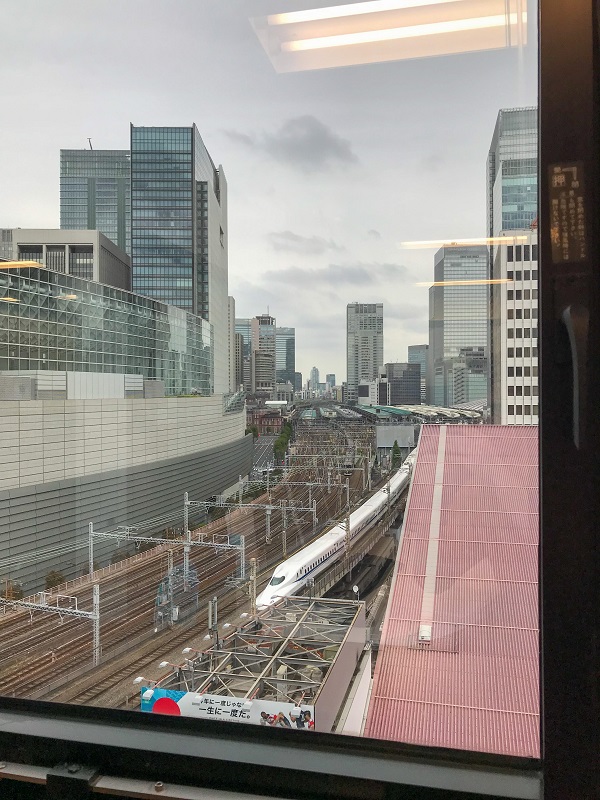
You aren’t sure why Japanese trains are romanticized. Perhaps they aren’t and you just have some obscure affection for them because of the obvious absence of public trains in the little part of the planet you were born in. Come to think of it, most of the ideas you have of distant cities and forests (why forests?) are somehow romanticized, as though something within you was dragging your imagination across the globe. On quiet days in the Southern rains, the tides within pull you away from your home towards these visions and without warning, on a day much like this, you decide to leave. You throw an old camera and a little phrasebook in a busted bag and use the couple cents you have to go and test the tones and textures of the fuzzy impressions you have about Japan, stored somewhere, undisturbed in your skull.

Is this the right train?
You drop your eyes and measure the tips of your sneakers against the yellow warning line of the station platform. Around you, currents of people rush about, falling in to place and shifting with the moving crowd, the effects of some tragedy or triumph of the day written in the furrows of their faces. The focus of business people, the exhaustion of Junior High students, and the speculative glances of University students all piece together the myriad faces that pass through the station. You look down the tunnel without shifting your weight, careful not to overstep the yellow line as the mechanical voice of the platform announcer sounds off as though it were coming from another room. The platform staff carefully check the edges of the platform with a routine passing of the arm from one end of the platform to the other, their eyes following their fingertips, looking for anomalies and finding none. You check your phone for the 11th time to make sure this is the correct platform. You’re still not sure.
The Subway Train Rush
A gust of wind disturbs your posture as the train arrives; the doors open and a flood of strangers washes out onto the platform, almost taking you with them as they diffuse into the currents of moving commuters. You weave and wiggle to the side and observe the expressions of those exiting the train – an ineffable network of human emotion crammed in one tiny place underground. The torrent ends and is then reversed as one mass of silhouettes is replaced with another, you amongst them trying to find a comfortable place to stand for your first train ride in Tokyo. Almost everyone is staring at some portable screen and the little pockets of light overpower the train’s fluorescent lighting; lighting that exposes all the scratches and imperfections on the train’s interior frame. Before you can orientate yourself and get your footing, the train surges forward and you stumble into the crowd, awkwardly mumbling the phrase of apology you memorized before arriving in Tokyo – gomennasai. The train crawls out of the tunnel and the soft light of the low sunset casts a wistful emphasis on all the shadows in the train. Could you get used to this?

Viewpoints from the Train
You didn’t know how much of Tokyo you could see from a train – and how little. The metal carriages cut through the contradictions of the city in various directions, and from elevated railway tracks, those contradictions become more apparent, like Tokyo was thrown together by a thousand undiscerning eyes. From above, the city seems a labyrinth of dissonant buildings impossible to navigate, the architecture inviting you to lose yourself somewhere in the neon alleys. How could you refuse? You can do nothing but ebb to its pull.
The train tilts on a turn and all the passengers heave to the side without lifting their eyes from their books or digital devices. It’s your sixth month here now, but you still forget the turn and manage to bump your forehead on the glass of the train door. Without, the city crawls over the horizon, interrupted only by grey rivers you are now able to name as you shuttle over them.

Boxed Lives
Passing your window are numerous other windows of houses and offices all occupied with little figures rushing back and forth, preoccupied with some other task of either absolute importance or complete insignificance – you couldn’t tell which were which. The distance between the train and these little boxes of existence is quite negligible and yet, somehow, it feels quite like a little infinity. You breathe a sigh that fogs the train window; Tokyo moves around you and you through it like a montage of other unknowable worlds that flicker past like flashing lights on a highway you can only catch a glimpse of. And all at once, you feel vacant, like a novel without text or an abandoned building without even the trace of dust. The crammed emptiness of the trains and city, and all its contradictions, echo within you. You try to shut out sounds with some earphones and music, but the howl of the train seems to come from within like your bones were the underground tunnels.
A Train to Somewhere Else
It’s your 13th month. Winter fills the spaces between things. You’ve watched every season come to pass and with them, friends come and go. Those you started with have left and certain train lines remind you of them. A light snow touches Tokyo and from the train, the city never seemed so quiet. You’re standing beside the train door looking to the vacant place across from you. You remember how she stood there, how you giggled, playfully pretending to be guardians of the train doors at each passing station, looking out at the city you got lost in together. And now it’s just you and she has returned to her little part of the globe. You see your reflection in the glow of the glass door, half an image of yourself dimly lit over lonely skyscrapers and the constellations of streetlights that keep the city aglow. You look different. You stand differently, but it’s still you. You close your eyes and gaze hungrily into the unattainable before opening them again to a passing station and the blur of unknowable strangers indifferent to the train’s profound howl.
So why don’t you return home?
Because there is nothing romantic about it.
And there are no trains.




